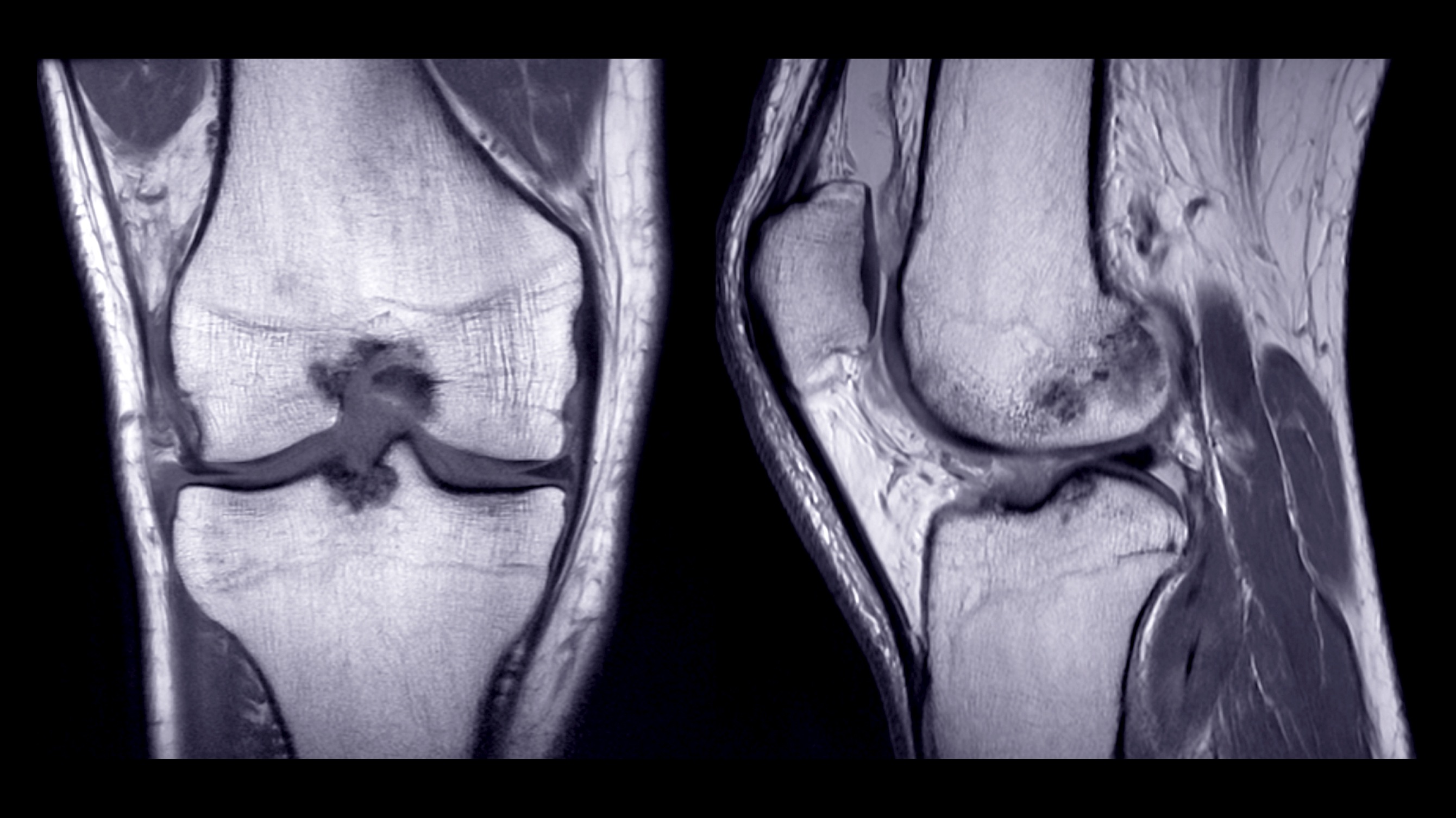
Researchers from the University of Maryland School of Medicine (UMSOM) have recently used an experimental growth factor therapy to improve osteoarthritis of the knee. By increasing the thickness of cartilage in the knee joint and preventing further degeneration of cartilage, this treatment has the potential to revolutionize care in osteoarthritis patients and greatly improve patient outcomes. The results from an early clinical trial evaluating this treatment were published on October 8 in the Journal of the American Medical Association (JAMA) and were presented in June at the European Congress of Rheumatology’s annual meeting.
In this work, the researchers evaluated 549 participants with knee osteoarthritis (OA) who were randomly assigned to receive injections of either sprifermin, recombinant human fibroblast growth factor 18, or a placebo injection to the knee. The sprifermin was given at either a low dose of 30 micrograms (μg) or a higher dose of 100 μg, given once or twice a year.
The team noted that the patients receiving the 100 μg dose, either once or twice daily, displayed a statistically significant gain in cartilage thickness after two years. This gain was subtle despite being statistically significant, being measured through quantitative magnetic resonance imaging (MRI) to be 0.02 or 0.03 millimeters (mm) after two years. The placebo group experienced a 0.02 mm loss of cartilage during the two-year time frame. Those who received lesser quantities of the experimental drugs showed smaller increases in cartilage thickness, however, these gains were not of statistical or clinical significance.
Despite gaining some cartilage thickness, those receiving the higher dosage of sprifermin saw no significant improvement in their arthritis symptoms (pain, stiffness, and physical disability) compared to those who received the lower dose or placebo.
“While the increase in cartilage thickness is a positive sign, we do not know at this point whether it has any clinical significance,” said lead investigator Marc Hochberg, MD, MPH a Professor of Medicine at UMSOM. “It is not known whether those who experience increased cartilage thickness over time will be able to avoid or delay knee replacement surgery.”
Injections were stopped at 18-months, but Hochberg and colleagues found that the difference between the higher dose of sprifermin and the placebo persisted for three years. This study is intended to continue for five years in total, with plans in place for future analysis of all data in the trial.
In a recent analysis of their data, Hochberg and his team looked at a subgroup of OA patients with severe pain and narrowing of the joint space, they found that those who received sprifermin 100 μg every six months saw significant improvement in their arthritis symptoms 18 months after their last injection when compared to those receiving placebo. Side effects associated with sprifermin in the study were mild or moderate for the most part, with complications such as acute inflammation at the site of the injection.
“These results support further investigation of sprifermin as a potential osteoarthritis treatment for both structure modification and symptom relief for higher-risk patient populations,” said Hochberg.
“Finding an effective therapy that can treat the cause of common chronic pain conditions like osteoarthritis would be a ground-breaking achievement,” added E. Albert Reece, MD, PhD, MBA, Executive Vice President for Medical Affairs, UM Baltimore, and the John Z. and Akiko K. Bowers Distinguished Professor and Dean, UMSOM. “I’m proud that our scientists are helping to move the knowledge forward on the effectiveness of new therapies to replace worn cartilage in the joints. This is very important work, and more answers are certainly needed.”







 © 2025 Mashup Media, LLC, a Formedics Property. All Rights Reserved.
© 2025 Mashup Media, LLC, a Formedics Property. All Rights Reserved.